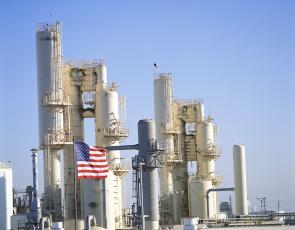WASHINGTON, D.C. — American Fuel & Petrochemical Manufacturers (AFPM) President and CEO Chet Thompson issued the following statement on the U.S. Environmental Protection Agency’s choice to grant California a waiver from the Clean Air Act to ban sales of new gas cars through its Advanced Clean Cars II rule:
“Contrary to claims on the campaign trail that they would never tell Americans what kinds of cars we have to drive, the Biden-Harris EPA just did exactly that by greenlighting California’s ban on sales of all new gas and traditional hybrid vehicles. EPA’s authorization of the California ban and California’s ban itself are unlawful. These policies will harm consumers—millions of whom don’t even live in California—by taking away their ability to buy new gas cars in their home states and raising vehicle and transportation costs. They will also undermine U.S. energy and national security. Americans want nothing to do with gas car bans, EV mandates or California radicalism, which they just made abundantly clear at the polls. I suspect this is why EPA waited until after the election to issue this decision.”
California’s Advanced Clean Cars II (ACCII) regulation is set to phase in over model years 2026 to 2035. By 2035, it would require 100% of new vehicle sales in-state (or in the ‘California states’) to be “zero emission.” No gas, diesel or traditional hybrid passenger cars and trucks meet California’s definition of “zero emission.” And only a small percentage (a maximum of 20%) of plug-in hybrid cars and trucks will be able to be sold.
The federal government is responsible for regulating vehicle tailpipe emissions. For California to implement ACCII, which varies from the federal standards, it must receive permission from the U.S. EPA in the form of a Clean Air Act waiver. EPA, by law, is not compelled to always grant these waivers.
More info on ACCII, the CA waiver, EV sales market and ongoing legal challenges:
- There are roughly a dozen states, representing nearly 35% of the U.S. population, that indicated they will follow all or part of California’s ACC II ban.
- None of these states are on track to meet ACC II’s 2026 target (35% combined EV and PHEV sales) and most are lagging ACCI’s targets, per Q2 2024 sales data from the Alliance for Automotive Innovation:
- California (26.72%)
- Colorado (19.43%)
- District of Columbia (19.35%)
- Washington (17.87%)
- Oregon (15.97%)
- New Jersey (13.25%)
- Vermont (11.93%)
- Massachusetts (11.57%)
- Maryland (11.31%)
- New York (9.67%)
- Rhode Island (8.04%)
- Delaware (7.56%)
- New Mexico (4.78%)
- None of these states are on track to meet ACC II’s 2026 target (35% combined EV and PHEV sales) and most are lagging ACCI’s targets, per Q2 2024 sales data from the Alliance for Automotive Innovation:
- News of EPA’s imminent decision on the ACCII waiver broke just hours after the Supreme Court of the United States (SCOTUS) granted a writ of certiorari from a coalition of energy, agriculture and biofuel groups, including AFPM, to argue their standing to challenge California’s ACCI EV sales mandate. SCOTUS has not yet indicated if it will proceed to the merits of the argument against California’s ACCI mandate, though AFPM’s petition presents that as a secondary question. Should SCOTUS choose to address the merits now or in the future, the Court could clarify the limits of the “California waiver” under the Clean Air Act and put to rest the threat of California’s ACCII ban at the same time.
The American Fuel & Petrochemical Manufacturers (AFPM) is the leading trade association representing the makers of the fuels that keep us moving, the petrochemicals that are the essential building blocks for modern life, and the midstream companies that get our feedstocks and products where they need to go. We make the products that make life better, safer and more sustainable — we make progress.


